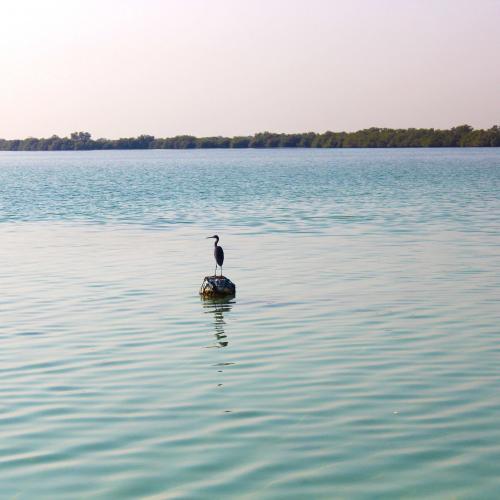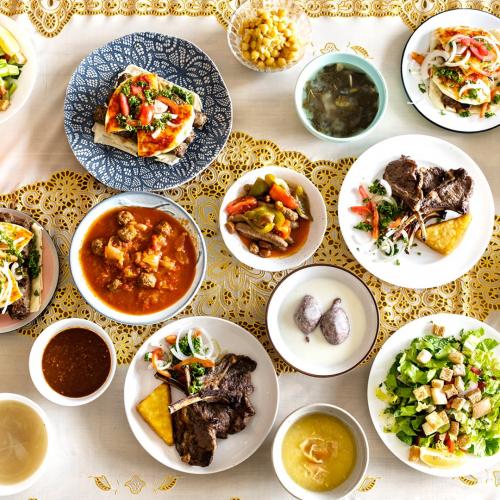Op-Ed: A Planet-Based Diet is Healthiest for People and Nature
- Helena Carless, Marketing and Engagement Director, Emirates Nature-WWF
An international movement is under way to promote more sustainable food habits that are good for people and good for the planet.
Some people live to eat. Others eat to live. Perhaps the ‘right’ way to eat lies somewhere in the middle.
The food we eat should be nourishing and nutritious. But in reality, our food choices contribute to serious lifestyle diseases like obesity and diabetes. These ailments are becoming more common as we become more sedentary. In the UAE, it is estimated that 43% of adults and 19% of school students are obese, and that 17% of adults (over one million people) have diabetes.
Our food system is also taking a toll on the health of our planet. Our methods of producing and consuming food are the primary causes of global biodiversity loss, deforestation, greenhouse gas emissions and pollution of the world’s water bodies.
For the prosperity of people and planet, we must reimagine the way we eat. This may seem like a tremendous ask, but it is ripe with health benefits for all of us.
A Sustainable and Healthy Diet
A planet-based diet is high in health benefits and low in environmental impacts. It requires us to make a few changes to our food habits to ensure healthy, nutritious and sustainable food for everyone on the planet.
These changes to the way we eat are simple and straightforward. Having just spent the last seven months adjusting to the ‘new normal,’ these adjustments might actually come quite easy. After all, the COVID-19 pandemic has made us learn new ways to buy groceries, spend more time preparing food at home and try out new recipes like the Dalgona Coffee and all types of sourdough.
As Easy as 1, 2, 3, 4 New Food Habits
A planet-based diet can be achieved with four simple dietary choices.
- Eat healthy and minimally processed foods.
We will be healthier if we eat fresher foods (such as vegetables, fruits, legumes and nuts) which are minimally processed and contain as few additives as possible. These foods can also help lower our overall calorie intake and address our growing obesity problem.
Healthy foods have a lower environmental footprint than processed foods. WWF’s latest report Bending the Curve explores the restorative power that planet-based diets can have on nature.
- Eat more plants than animals.
Plants are rich in nutrients, fibre and even protein. They also require less water, energy and land, than meats, poultry, seafood and dairy.
The beef and dairy industries have a particularly negative impact on the planet. Beef production requires more land than any other commodity, is a leading cause of deforestation, creates large amounts of the greenhouse gas methane and contributes significantly to climate change, the greatest threat to our wellbeing.
- Eat lots of different foods.
We should eat a broad range of foods to ensure we receive a healthy variety of nutrients. The planet also benefits from a variety of food being grown.
Soils are healthier when different types of crops are grown together, and fertilizer use can be reduced. Diverse diets also help build a stronger food system which is resilient to shocks like pests, disease and extreme weather.
- Buy food that’s sustainably produced.
The UAE imports the majority of its food from other countries and has always prioritised food security. As Sheikh Mohammed bin Rashid recently said: "Our food and water security is part of our national security, and the sustainability of our food and water resources will ensure our sustainable development."
The National Food Security Strategy focusses on providing people in the UAE access to sufficient, safe and nutritious food at affordable prices at all times, including emergencies and crises. An important way to achieve this is by growing food locally.
Buying sustainably produced food from local producers means that the food consumed is freshly picked and has a smaller environmental footprint. It spends less time in transport and storage than food that is imported from other countries and continents. Buying local also has the advantage of supporting local businesses and creating local jobs.
The UAE has made significant strides in this area. 20% of fruit and vegetables consumed in the Emirates are now grown locally.
Together, We Can Build a Healthier Future for All
Small steps in the right direction add up quickly, especially when all of us act at the same time. Research demonstrates that younger generations and women across all generations are committed to making healthy food choices – both for our sakes and for the planet.
By adopting a planet-based diet, Mothers and Caretakers ensure the good health of their families and loved ones. By making better food choices today, younger generations can shape a better future for themselves and the planet that we call home.



